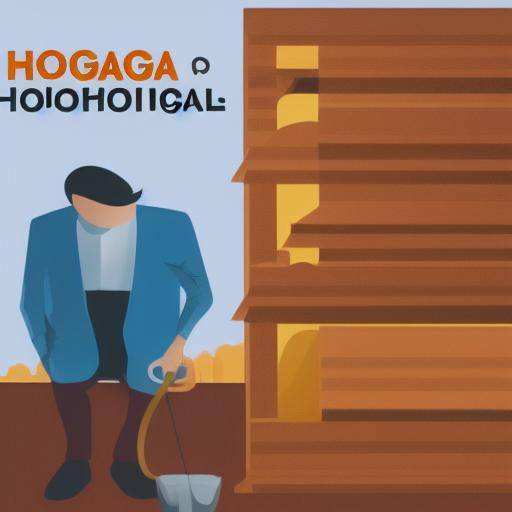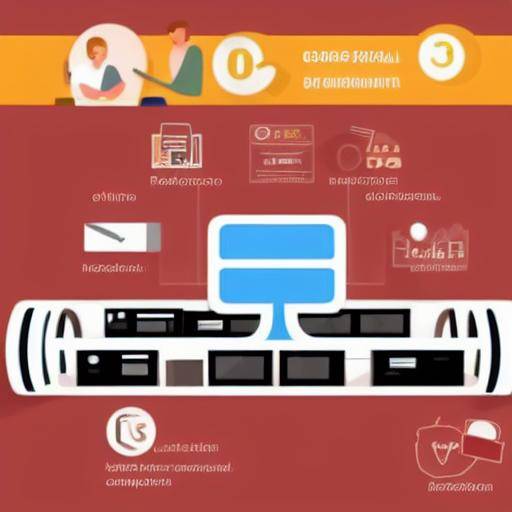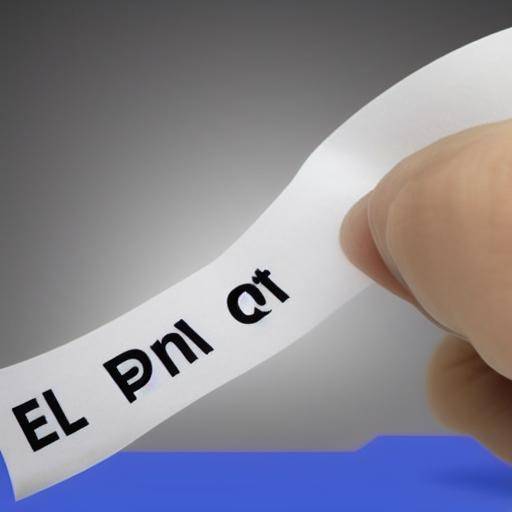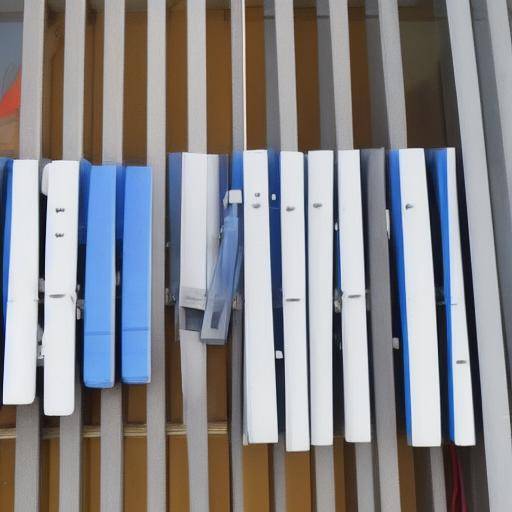
The care and protection of our goods is of utmost importance. We all want to feel safe and calm, knowing that our belongings and home are properly protected in case of any unforeseen. In this article, we will explore the fundamental role of home insurance in the coverage, security and tranquility of our goods. From its historical evolution to current benefits, detailed analysis, practical advice, industry perspectives and future predictions, we will discover how home insurance plays a crucial role in protecting our assets.
Introduction
Home insurance, also known as housing insurance, is an invaluable protection for owners and tenants. It not only provides financial coverage in case of damage, theft or accidents, but also provides a sense of security and tranquility. In this article, we will explore how home insurance evolved to provide this comprehensive protection and the importance of understanding its role in the security of our homes and goods.
History and Background
The origin of home insurance dates back centuries, when old societies sought to protect themselves against material losses. While the modern concept of home insurance was developed during the seventeenth century in Europe, with the rise of private property and the need for fire protection, theft and other risks. Since then, home insurance has experienced multiple developments, adapting to the changing needs of owners and market demands.
One of the first forms of home insurance dates back to the 17th century, when specialized companies offered fire protection in London. Over time, new coverages were added to cover a wider spectrum of risks, including water damage, theft, civil liability and natural disasters. These developments reflected the growing need to protect not only the physical structure of property, but also the personal property and financial stability of the owners.
Home insurance has continued to evolve in the contemporary world. Technological advances allow for more accurate risk assessment and more efficient management of claims. Insurance companies have diversified their products to adapt to changing family structures and lifestyles. In today's society, household insurance not only provides material protection, but also contributes significantly to the emotional and psychological security of the owners.
Analysis in Deep
Benefits of Home Insurance
Home insurance provides a wide range of benefits that go beyond mere material protection. In addition to providing financial coverage in case of loss or damage, it also provides emotional tranquility to the owners. The certainty that your home and belongings are protected allows you to enjoy greater security in your day to day.
In addition, home insurance provides critical backup in emergency situations, minimizing the financial impact of unforeseen events. The rapid response and management of claims allows the owners to recover more quickly from adversities, promoting stability and well-being.
Current Challenges
Despite countless benefits, home insurance also faces challenges today. Increased extreme weather events, such as floods and storms, have generated additional pressure on insurance companies to provide effective coverage. In addition, the growing sophistication of cyber and technological risks has generated the need for new policies that address these emerging challenges.
Another significant challenge lies in the perception of the value of home insurance. Owners sometimes underestimate the importance of adequate coverage, which may result in significant financial consequences in the event of a sinister. It is essential to raise awareness of the tangible and intangible benefits of home insurance, promoting a culture of prevention and protection.
Current trends
Current trends in home insurance reflect adaptation to the digital age and changing demands of consumers. The implementation of state-of-the-art technology, such as home automation and smart security devices, has allowed insurers to offer custom policies that meet the specific needs of the owners. This customer-oriented approach promotes greater satisfaction and loyalty.
Another notable trend is the integration of complementary services, such as home assistance and sinister management, which add additional value to household insurance policies. These services not only improve the customer's experience, but also strengthen the relationship between insurers and insurers, providing a differentiated value in a highly competitive market.
Comprehensive review
Practices and Best Practices
When it comes to hiring a home insurance, it is essential to carefully consider the coverage offered and to assess its suitability for the specific needs of each household. Owners should be aware of key details, such as asset valuation, coverage exclusions and liability limits, to ensure comprehensive protection.
In addition, the implementation of preventive measures, such as the installation of security systems and preventive maintenance, can significantly reduce the risk of sinisters and, consequently, have a positive impact on insurance premiums.
Including security measures such as alarms, anti-bumping locks and perimeter security systems, may reduce the risk perceived by insurers, resulting in lower premiums and a lower risk to the insured.
Industry Perspectives and Expert Reviews
The perspectives of the home insurance industry point towards greater customization and adaptability in the policies offered. Experts agree that flexibility and responsiveness to the changing needs of the owners will be critical to meeting market demands.
There is also a consensus on the importance of promoting education and awareness of household protection, fostering a culture of risk prevention and mitigation. This joint work between insurers, security experts and owners will help to strengthen the resilience of households to potential adversities.
Comparative analysis
In order to better understand the role of home insurance in the protection of goods, it is important to establish comparisons between the various options available and to assess their suitability for individual needs. The coverage, security and tranquility offered by each policy are fundamental aspects that should be considered in this comparative analysis.
Coverage Comparison
Home insurance policies can vary significantly in terms of coverage. Some policies may include protection against natural disasters, while others focus on coverage of theft or water damage. Carefully assess available coverage and exclusions allows you to select a policy that is optimally aligned with specific protection needs.
Security Assessment
The security assessment of a home insurance policy lies in the solidity and reliability of the insurer, as well as in its background in the management of claims and the assistance provided to the insured. Security also relates to the financial stability of the insurance company, as it guarantees its ability to meet contractual obligations in case of sinister.
In addition, aspects such as the availability of safety prevention and advisory services may influence the perception of security provided by a home insurance policy to the owners.
Impact on Quietness
The tranquility of home insurance is closely linked to the certainty of having comprehensive protection against possible adverse events. A policy that covers a wide range of risks and offers efficient management of claims contributes significantly to the emotional and financial tranquility of the owners.
Confidence in the security of the goods and the certainty of a quick and effective response by the insurer promote a state of tranquility that positively influences the quality of life of the insured.
Practical Tips and Recommendations
Needs Assessment
Before you hire a home insurance, you need to carefully evaluate the individual needs. Considering geographical location, type of housing, value of assets and potential threats is critical to determining the level of coverage required. This evaluation allows you to select a policy that fits perfectly to the protection needs.
Prevention measures
Implementing preventive measures, such as the installation of security systems and the regular maintenance of housing, can significantly reduce the risk of sinisters and, therefore, positively influence insurance premiums. Insurers value the proactive measures that the owners take to protect their goods, which can result in additional benefits.
Periodic Review of Coverages
It is advisable to periodically review home insurance coverage to ensure that they remain adequate as personal circumstances change. Events such as the acquisition of new goods, the realization of housing reforms or changes in the environment may require adjustments in coverage to maintain comprehensive protection.
Professional advice
Finding advice from insurance professionals can provide an expert guide when selecting a home insurance policy. Insurance agents can provide detailed information on available options and help select the most appropriate policy based on specific needs.
Industry Visions and Expert Reviews
Adaptation to Current Trends
The home insurance industry is constantly evolving, adapting to the technological trends and changing demands of consumers. The ability to provide customized policies, based on a precise assessment of individual risks and needs, is profiled as a key differential in a competitive market.
In addition, insurers are incorporating complementary services, such as home assistance and sinister management, to provide added value to their policies. These are
Case Analysis and Practical Applications
The implementation of complementary services, such as home assistance and sinister management, add significant value to home insurance. These services not only improve the customer's experience, but also strengthen the relationship between insurers and insurers, providing a differentiated value in a highly competitive market.
Case Study: Best Practices in Prevention
An outstanding case of study is the proactive approach of an insurer to promote prevention measures among its insured. The implementation of home security advisory programmes and the promotion of the installation of protection devices resulted in a significant reduction in claims for theft and damage, benefiting both the insured and the insurance company itself.
Practical Applications: Added Value in Services
The integration of value-added services, such as home assistance and sinister management, has proven to be an effective strategy to strengthen the loyalty of insured persons. Cases of practical application show that the combination of comprehensive coverage with services that facilitate the management of adverse situations provides a more complete and satisfactory experience for owners.
Future Trends and Predictions
Customization and Flexibility
Future trends in home insurance are expected to be directed towards greater customization and flexibility in the policies offered. The ability to adapt to the changing needs of the owners and provide tailor-made solutions will boost greater customer satisfaction and competitiveness in the market.
Emerging technologies
The incorporation of emerging technologies, such as artificial intelligence and the Internet of Things (IoT), promises to revolutionize risk management and the provision of services in home insurance. From accurate risk assessment to early detection of risk situations, these technologies are profiling for more efficient and proactive management.
Prevention and Education
The approach to prevention and education will continue to be a priority for the home insurance industry. Promoting a culture of security and prevention will strengthen the resilience of households against emerging risks, consolidating a collaborative partnership between insurers, owners and security experts.
Conclusions
The crucial role of home insurance in protecting our goods goes beyond mere material coverage. It provides security, tranquility and emotional and financial stability to the owners, promoting an environment of trust and well-being. In understanding the importance of home insurance and its implications for the protection of property, owners can make informed decisions that strengthen their security and contribute to the tranquility of their homes.
Frequently asked questions
What are the essential coverages that a home insurance should offer?
Essential household insurance should provide fire cover, water damage, theft, civil liability and natural disasters. It is essential to carefully evaluate the coverage offered to ensure comprehensive protection.
How can I reduce the cost of my home insurance without sacrificing coverage?
Implementing preventive measures, such as the installation of security systems and the regular maintenance of housing, can positively influence insurance premiums. Regularly reviewing coverages and comparing offers from different insurers can also help reduce costs.
What is the importance of security in a home insurance policy?
Security in a home insurance policy is related to the solidity and reliability of the insurer, as well as the company's financial stability. It ensures the capacity of the insurer to meet contractual obligations in case of sinister.
What future trends are glimpsed in home insurance?
Future trends are expected to be directed towards greater customization and flexibility in policies, the incorporation of emerging technologies, such as artificial intelligence and IoT, and a continuing focus on prevention and education.
How can I select the most suitable home insurance policy for my needs?
When selecting a home insurance policy, it is essential to evaluate the coverage offered, implement prevention measures, seek advice from specialized professionals and periodically review coverages to ensure their suitability.
How does home insurance contribute to the tranquility of the owners?
Home insurance provides tranquility by providing comprehensive protection against potential adverse events. The certainty that home and property are protected promotes a state of emotional and financial tranquility for the owners.
In short, home insurance plays an indispensable role in the protection and security of our goods, providing comprehensive coverage and promoting the tranquility of the owners. By understanding their importance and implementing best practices, owners can ensure the proper protection of their homes and property, contributing to a safe and secure environment for them and their families.
Remember that a home insurance is not only a financial protection, but also provides a sense of security and tranquility. In understanding the importance of home insurance and its implications for the protection of property, owners can make informed decisions that strengthen their security and contribute to the tranquility of their homes.






















































